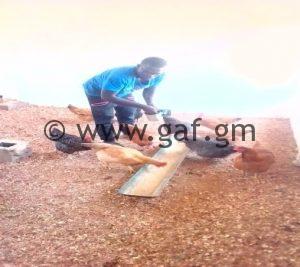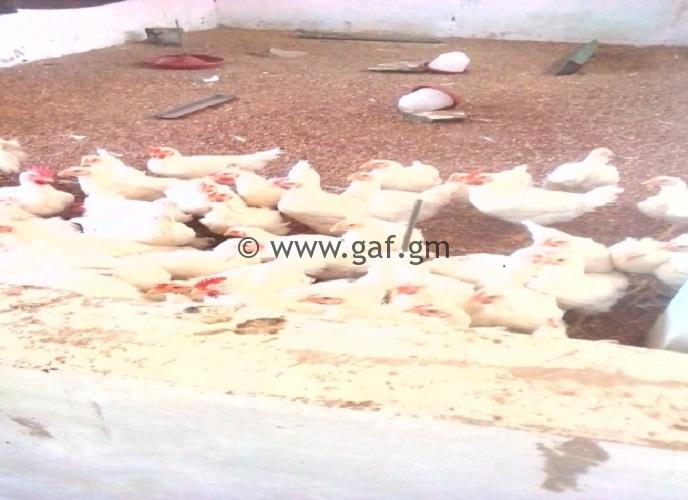Raising domesticated birds such as chickens, ducks, turkey and so on for the purpose of farming meat or egg for food is essential for all especially the Armed Forces. This is due to her heavy reliance on these as a source protein for the members of the military. As the 1 Infantry Battalion successfully embarks on poultry farming, it has gathered knowledge and experience enough to champion the endeavor. The project was conceived and introduced last year at the said Battalion starting with 35 indoor broilers. 
These meat chickens commonly called broilers were floor raised on litter such as saw dust and peanut shells in large open houses known as grow out houses. Keeping chickens in a house protects them from predators such as eagles, wild dogs etc. The 35 broilers grew to maturity (45) days and were put on sale on trial basis. The proceeds were used to purchase another 100 chicken broilers that are growing well. However, the unit further purchased another 20 chicken layers for egg production.
However, some of the little but very important remedies for raising these domestic birds – antibiotics are used on poultry farming throughout. This is to help improve the health of the egg laying chickens in order to experience lower mortality rates and illnesses. The antibiotics prevent, control and treat diseases in order to make the chicken reach their market weight at a much faster rate at a lower cost.
In addition to antibiotics is Chicken feed, which is vital for growth. Normally, two types of chicken feeds are used to raise them before they reach maturity. They are the starters and growers. Starters are used at the early stage of processing whilst the growers are used when the chickens are reaching maturity and are ready for the market or consumption. Part of the Proceeds from the sale is used to buy the feed and this had a positive impact on the process. However, the Battalion intends to remain steadfast in this project since it is income generating, profitable and sustainable and more importantly, beneficial to members of the Battalion and the surrounding civil population.







